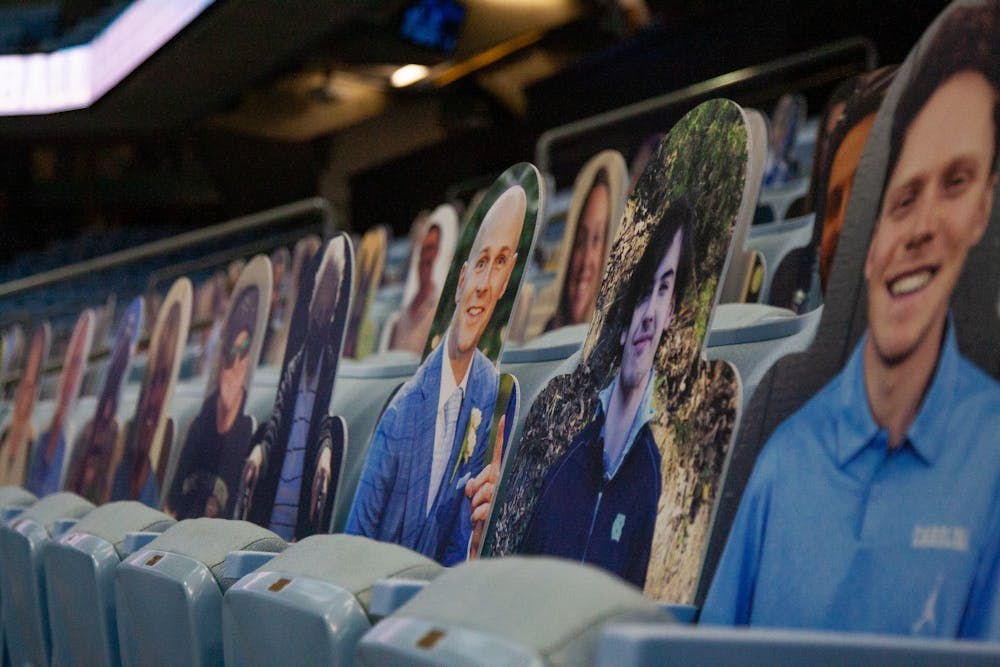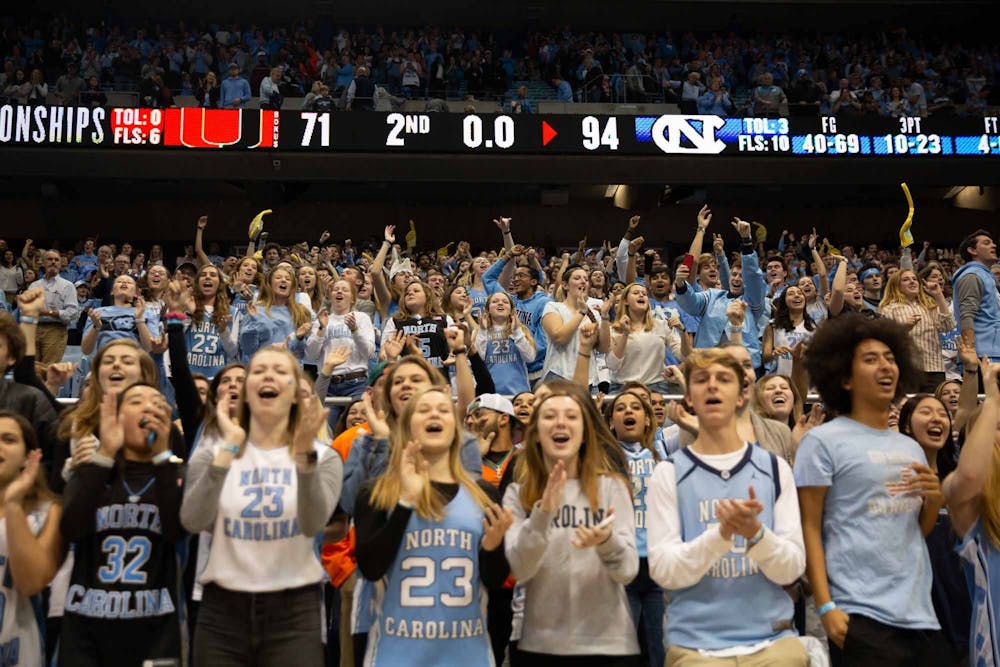They were always there.
There, when an eight-point deficit vanished in 17 seconds. There, when a half-court buzzer-beater determined that one overtime just wouldn’t cut it. There, when a 3-pointer over the outstretched arms of a 7-footer silenced a Dean E. Smith Center crowd. There for a countless number of dunks, full-court presses, midrange pull-up twos and no-that-screen-won’t-work-let-me-pull-the-ball-back-out-and-reset-the-offenses.
They’ve been there, so far, for every moment. But not this year.
Fans have always been the crucial third character in the drama that is North Carolina-Duke men’s basketball. In Durham, the Cameron Crazies who camp out for weeks for the right to paint their face blue and scream at other kids their age who live 10 miles down the road. In Chapel Hill, the so-called wine and cheese crowd that — believe it or not — still gets pretty loud in the run-up to a close finish.
But thanks to COVID-19, there will be no one in the stands on Saturday when Cascada’s “Everytime We Touch” is blaring through the Cameron Indoor Stadium speakers. Odds aren’t great for the rematch a month later, when House of Pain’s “Jump Around” is reverberating throughout the Smith Center. It begs the question: What’s a UNC-Duke game without a crowd to watch it?
Granted, if there were a time to hold a UNC-Duke game without fans, this season would probably be it. Saturday could mark the first time the two teams will face off as unranked opponents since — wait for it — Feb. 27, 1960.
North Carolina is, at the time of publication, 11-5 and working through the trials and tribulations of a young backcourt. Duke is a middling 7-5 thanks to COVID-19 cancellations and a roster that’s less talented than usual. Neither team has (realistic) national championship aspirations — the Blue Devils would be happy to make the NCAA Tournament. That means all there is to play for for these two teams is pride, a not inconsiderable notion given the rivalry but considerably lower stakes than the norm.
Still, it would feel impossible to grasp the full enormity of the moments mentioned above — the Walter Davis-led comeback in 1974, the Jeff Capel heave to set up double overtime in 1995, the Austin Rivers game-winner in 2012 — without the thousands of people who reacted to those moments in real time. Not to mention the wide-eyed, after-the-fact accounts of just how awesome (or tragic) those moments were.
Those are the things that keep rivalries, or any traditions, alive and kicking.




